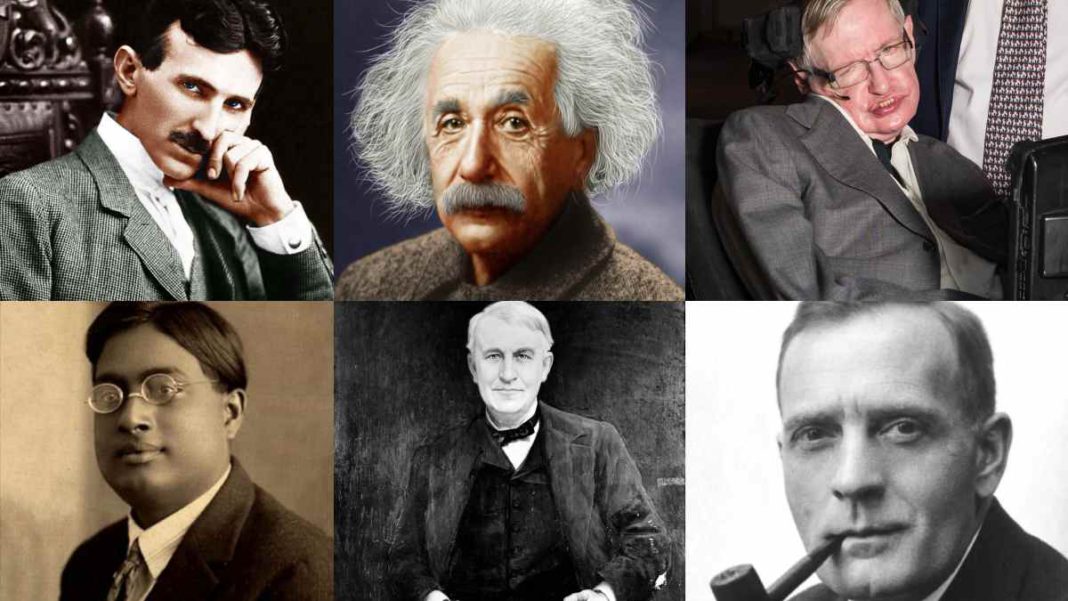INDIA: The Nobel Prize is widely regarded as one of the most prestigious awards in the world, honoring individuals who have made outstanding contributions to various fields. Over the years, numerous remarkable scientists have been recognized and celebrated through this esteemed award.
However, there are instances when exceptional minds and their groundbreaking work have been overlooked, resulting in what can be considered snubs by the Nobel Prize committee.
1. Nikola Tesla: The forgotten genius
Early life and contributions
Nikola Tesla, born in 1856 in modern-day Croatia, was a brilliant electrical engineer and inventor. His revolutionary work laid the foundation for the modern alternating current (AC) electrical supply system,so you receive electricity from the power station to your home because of this man.
Tesla’s inventions, such as the Tesla coil and the induction motor, transformed the world of electricity and power transmission. However, despite his tremendous contribution to science and technology, Tesla never received the Nobel Prize.
Reasons for snub
One possible reason for Tesla’s exclusion from the Nobel Prize is the ongoing feud between him and Thomas Edison, who was a prominent figure at the time. This rivalry may have influenced the Nobel Committee’s decision.
Additionally, Tesla’s eccentric personality and unorthodox ideas may have contributed to his omission from the prestigious award.
2. Stephen Hawking: Exploring the universe from a wheelchair
A remarkable mind
Stephen Hawking, a modern British theoretical physicist, captured the world’s imagination with his unique work on black holes, cosmology, and the nature of the universe.
Despite being diagnosed with a motor neuron disease at the age of 21, Hawking defied all odds and made extraordinary contributions to physics.
His concept of “Hawking’s Radiation”, which suggests that black holes are not entirely black after all but generate radiations that ultimately cause them to vanish, was one of Hawking’s most significant discoveries.
Snubbed by the Nobel Prize
Although Hawking’s achievements were widely recognized and admired, he never received the Nobel Prize. The reasons for this omission are complex. The Nobel Prize in Physics often focuses on theoretical discoveries that can be proven experimentally.
Hawking’s work on black holes and the nature of time, while highly influential, did not yield direct observational evidence, which may have impacted his chances of receiving the award.
3. Albert Einstein: The Father of Modern Physics
Revolutionizing science
Albert Einstein’s name is synonymous with genius. His theory of relativity redefined how we think about gravity, space, and time.
Einstein’s groundbreaking work earned him immense recognition within the scientific community, but the Nobel Prize eluded him for many years.
The Nobel Prize controversy
Einstein was awarded the Nobel Prize in 1921, but not for his theory of relativity. The prize was given for his discovery of the photoelectric effect.
Many believe that the Nobel committee missed an opportunity to recognize the full scope and impact of Einstein’s contributions by not awarding him the prize specifically for his theory of relativity.
4. Satyendra Nath Bose: A Pioneer of Quantum Statistics
Bose-Einstein Statistics
Satyendra Nath Bose, an Indian physicist, collaborated with Albert Einstein to develop a revolutionary theory known as Bose-Einstein statistics.
This theory describes the behavior of particles with integer spin, which led to the discovery of new states of matter, such as Bose-Einstein condensates.
Overlooked achievement
Despite the profound impact of Bose’s work on quantum mechanics, he was not recognized by the Nobel Prize committee. Bose’s contributions were significant in shaping our understanding of fundamental particles, but the Nobel Prize eluded him throughout his career.
5. Edwin Hubble: Expanding our view of the universe
The Hubble Space Telescope
Edwin Hubble, an American astronomer, made groundbreaking discoveries that revolutionized our understanding of the universe.
Hubble’s observations and calculations provided compelling evidence for the expansion of the universe and the existence of galaxies beyond our own.
The absence of a Nobel Prize
Despite his pivotal role in advancing the field of astronomy, Hubble never received a Nobel Prize. It is believed that his contributions were not directly aligned with the Nobel committee’s criteria, which often focus on theoretical and experimental work within the realm of physics.
6. Thomas Edison: Illuminating the World
The wizard of Menlo Park
Thomas Edison, an American inventor, held a record-breaking number of patents and was responsible for game-changing inventions such as the phonograph and the practical electric light bulb. His work in electrical power generation and distribution transformed the modern world.
Edison’s lack of Nobel recognition
Despite his tremendous impact on society and the field of technology, Thomas Edison never received the Nobel Prize. It is speculated that the Nobel Committee’s emphasis on scientific discoveries and theoretical advancements played a role in the exclusion of inventors like Edison.
Conclusion
The Nobel Prize has honored countless individuals for their remarkable contributions to various fields, but it is important to acknowledge the scientists who, despite their profound impact on society, were snubbed by this prestigious award.
Nikola Tesla, Stephen Hawking, Albert Einstein, Satyendra Nath Bose, Edwin Hubble, and Thomas Edison all left an indelible mark on their respective disciplines, shaping the world we live in today.
Their achievements and legacies continue to inspire future generations of scientists, reminding us that recognition and validation come in many forms.
Also Read: Tesla EXPLR9: A Reliable Smartphone You Don’t Know about



